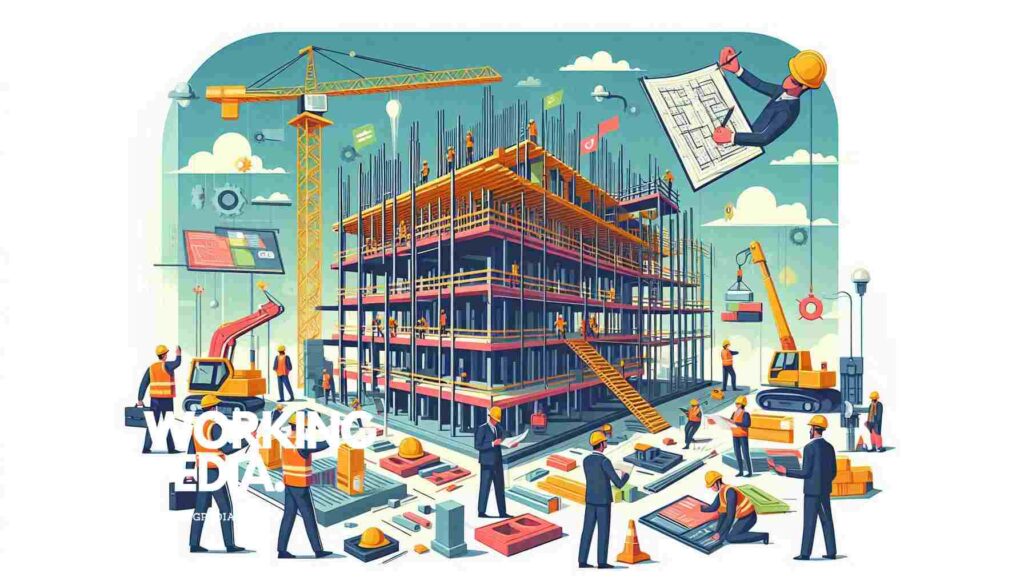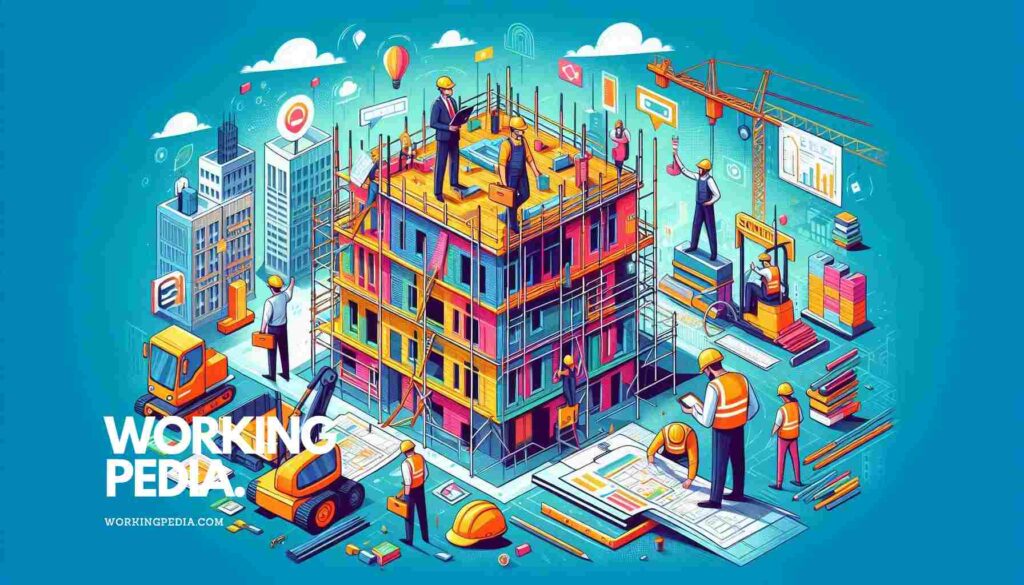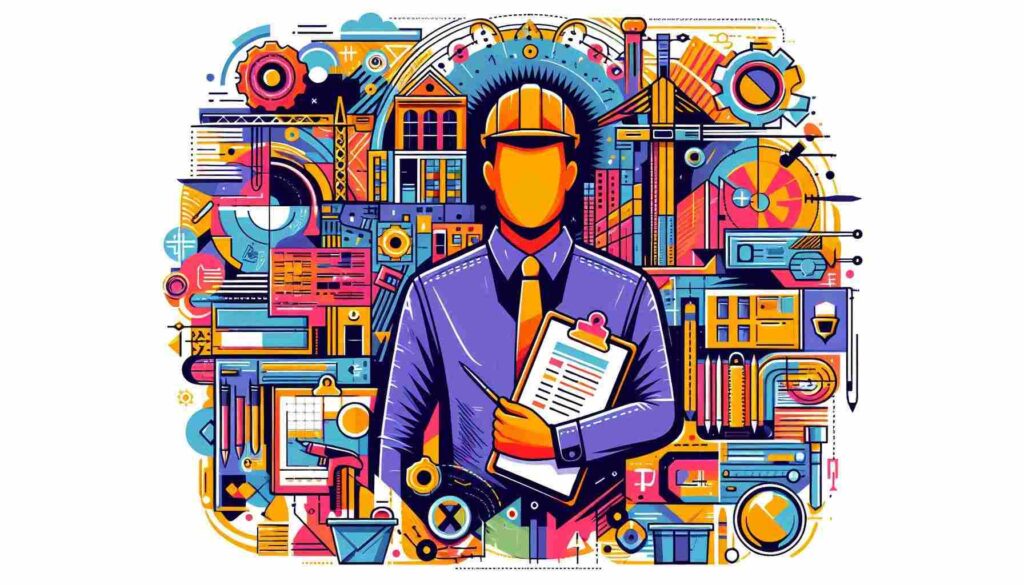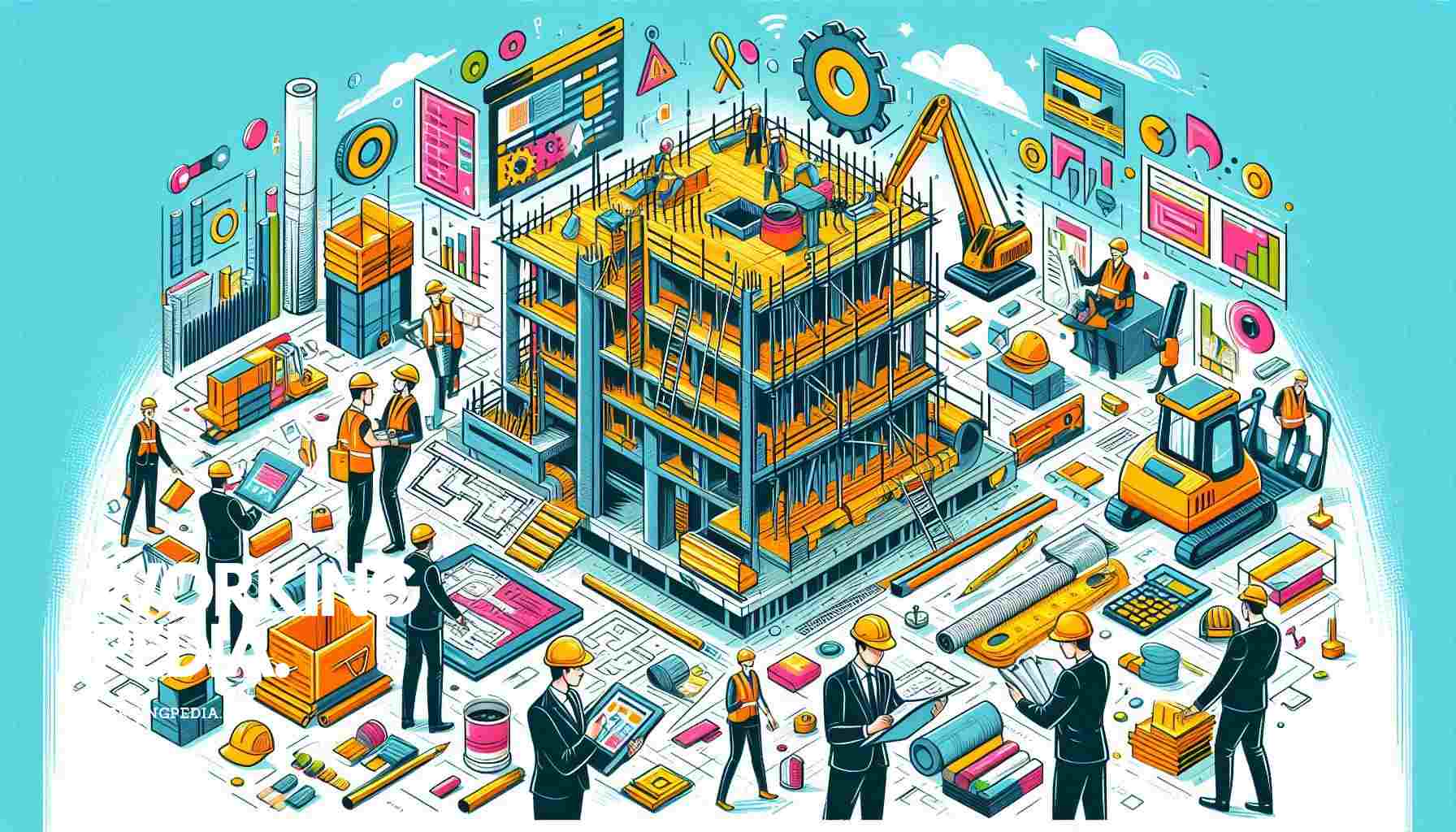Ever wondered who’s the mastermind behind those towering skyscrapers or sprawling residential complexes? Enter the construction project manager – the unsung hero of the building world. These folks are like the conductors of a massive orchestra, making sure every instrument plays in perfect harmony to create a masterpiece of brick and mortar.
In today’s rapidly evolving construction landscape, the role of a project manager has become more crucial than ever. They’re the glue that holds together the complex web of contractors, architects, engineers, and clients. Without them, our skylines might look a lot less impressive and a whole lot more chaotic!
Key Takeaway
- The definition and key responsibilities of a construction project manager
- Essential skills needed to excel in this role
- The typical day-to-day tasks of a project manager
- How project managers navigate the various phases of construction
- The challenges they face and how they overcome them
In a nutshell, a construction project manager is the person responsible for overseeing and coordinating all aspects of a building project from start to finish. They’re the ones who ensure that projects are completed on time, within budget, and to the required quality standards. It’s a job that requires a unique blend of technical knowledge, leadership skills, and the ability to juggle multiple tasks simultaneously.

What Does a Construction Project Manager Do?
Imagine you’re the captain of a ship navigating through stormy seas. That’s pretty much what being a construction project manager feels like. You’re steering a massive vessel (your project) through unpredictable waters (the construction process), trying to reach your destination (project completion) safely and on time.
The responsibilities of a construction project manager are as vast as the projects they oversee. Here’s a breakdown of their key duties:
- Planning and scheduling: They create detailed project timelines and ensure everyone sticks to them.
- Budgeting: Managing costs is crucial. They need to make sure the project doesn’t go over budget.
- Resource allocation: Assigning the right people and materials to the right tasks at the right time.
- Risk management: Anticipating potential issues and having contingency plans in place.
- Quality control: Ensuring the work meets all necessary standards and specifications.
- Communication: Acting as the central point of contact for all stakeholders involved in the project.
It’s a role that requires wearing many hats – sometimes literally, when you’re on-site with a hard hat! One day you might be crunching numbers in the office, the next you could be resolving a dispute between subcontractors on the construction site.
Essential Skills for Success
Now, you might be thinking, “Wow, that’s a lot to handle!” And you’d be right. Being a successful construction project manager requires a unique skill set. Here are some of the most important ones:
Technical knowledge: A solid understanding of construction methods, building codes, and safety regulations is essential. You don’t need to be an expert in everything, but you should know enough to make informed decisions and communicate effectively with specialists.
Leadership: You’ll be managing teams of diverse professionals, from architects to laborers. Strong leadership skills are crucial for motivating your team and keeping everyone aligned with the project goals.
Communication: Clear, effective communication is the backbone of successful project management. You’ll need to explain complex technical concepts to non-technical stakeholders, mediate conflicts, and keep everyone informed about project progress.
Problem-solving: In construction, things rarely go exactly as planned. You’ll need to think on your feet and come up with creative solutions to unexpected challenges.
Time management: Juggling multiple tasks and priorities is par for the course. Excellent time management skills will help you stay on top of everything without burning out.
Attention to detail: In construction, small oversights can lead to big problems. A keen eye for detail will help you catch potential issues before they become major headaches.

A Day in the Life of a Construction Project Manager
Ever wondered what a typical day looks like for a construction project manager? Well, let me tell you, there’s no such thing as a “typical” day! Every day brings new challenges and surprises. But here’s a glimpse into what you might expect:
6:00 AM: Rise and shine! Many project managers start their day early to get a head start on the day’s tasks.
7:00 AM: Arrive at the construction site. Conduct a quick walk-through to check on progress and identify any immediate issues.
8:00 AM: Hold a morning meeting with the site supervisor and key team members. Discuss the day’s goals, address any concerns, and make sure everyone knows their responsibilities.
9:30 AM: Review and respond to emails. This could include communicating with clients, coordinating with suppliers, or addressing queries from team members.
11:00 AM: Attend a progress meeting with the client. Present updates on the project timeline, budget, and any changes or issues that have arisen.
1:00 PM: Back on site to oversee a critical phase of construction. Today, it might be the pouring of a concrete foundation.
3:00 PM: Meet with the procurement team to discuss upcoming material needs and ensure timely delivery.
4:30 PM: Review and approve invoices, ensuring they align with the work completed and the agreed-upon contracts.
6:00 PM: Final site walk-through to check on the day’s progress and plan for tomorrow.
7:00 PM: Head home, but remain on call for any emergencies that might arise overnight.
Of course, this schedule can vary wildly depending on the project phase, unexpected issues that crop up, and the specific needs of each unique project. Flexibility is key in this role!
Navigating the Phases of Construction
A construction project is like a journey, and the project manager is the navigator guiding the ship through each phase. Let’s break down these phases and see how a project manager’s role evolves throughout the project lifecycle:
Conceptualization and Feasibility: In this initial phase, the project manager works closely with clients and stakeholders to define the project scope, objectives, and requirements. They conduct feasibility studies to assess whether the project is viable from technical, financial, and legal perspectives.
Pre-construction Planning: This is where the real planning magic happens. The project manager develops detailed project plans, including timelines, budgets, and resource allocation. They also start assembling the project team, selecting contractors, and obtaining necessary permits and approvals.
Construction: This is the phase where plans turn into reality. The project manager oversees daily operations, coordinates between different teams, manages resources, and ensures work is progressing according to plan. They also monitor quality, safety, and compliance with regulations.
Post-construction: Even after the building is complete, the project manager’s job isn’t done. They oversee final inspections, ensure all systems are functioning properly, and manage the handover process to the client. They also conduct project evaluations to identify lessons learned for future projects.
Throughout these phases, the project manager must be adaptable, ready to shift gears as the project evolves. They might be focusing on design details one day and troubleshooting equipment issues the next. It’s this variety that makes the job both challenging and exciting.
As we move into the second half of our exploration of the construction project manager’s role, we’ll delve into the challenges they face and the strategies they use to overcome them. We’ll also look at how technology is transforming this field and what the future holds for construction project management. So, stick around – there’s plenty more to discover!

Challenges and Solutions in Construction Project Management
Let’s face it, being a construction project manager isn’t all hard hats and blueprints. It’s a role that comes with its fair share of headaches. But hey, that’s what makes it exciting, right? Let’s dive into some of the biggest challenges these folks face and how they tackle them head-on.
Budget Overruns: One of the most common nightmares for project managers. Unexpected costs can pop up like whack-a-moles, threatening to blow the budget out of the water. Smart project managers combat this by building contingency funds into their budgets and constantly monitoring expenses. They’re also not afraid to get creative – sometimes, finding alternative materials or methods can save a bundle without compromising quality.
Schedule Delays: Time is money in construction, and delays can be costly. Weather, supply chain issues, or labor shortages can all throw a wrench in the works. Experienced project managers always have a Plan B (and sometimes a Plan C and D). They use techniques like critical path method scheduling to identify which tasks can be delayed without impacting the overall timeline.
Safety Concerns: Construction sites can be dangerous places, and ensuring everyone goes home safe at the end of the day is a top priority. Project managers need to be vigilant about enforcing safety protocols and providing proper training. They often work closely with safety officers to conduct regular site inspections and address potential hazards before they become accidents.
Communication Breakdowns: With so many moving parts and people involved, miscommunication is bound to happen. Savvy project managers combat this by implementing clear communication channels and regular check-ins. They might use project management software to keep everyone on the same page or hold daily huddles to address issues promptly.
The Future of Construction Project Management
Hold onto your hard hats, folks, because the world of construction project management is evolving faster than you can say “groundbreaking ceremony”. Technology is reshaping the industry in ways that would make our predecessors’ jaws drop. Let’s peek into the crystal ball and see what the future holds:
Building Information Modeling (BIM): This 3D model-based technology is revolutionizing how projects are planned and executed. It allows project managers to visualize the entire project before a single brick is laid, helping to identify potential issues early on. BIM is becoming so crucial that many project managers are scrambling to become BIM certified.
Drones and AI: Drones are no longer just cool toys. They’re becoming invaluable tools for site inspections and progress monitoring. Coupled with AI, they can analyze data and identify potential issues faster than any human could. Some project managers are even using AI-powered chatbots to handle routine queries, freeing up their time for more complex tasks.
Sustainable Construction: As the world becomes more eco-conscious, project managers are having to bone up on green building practices. From sourcing sustainable materials to implementing energy-efficient systems, the push for sustainability is reshaping how projects are approached from the ground up.
Remote Work and Virtual Reality: The pandemic showed us that even construction isn’t immune to the remote work trend. Project managers are increasingly using virtual reality to conduct site visits and collaborate with team members across the globe. It’s not quite the same as being there in person, but it’s pretty darn close!
As we wrap up our journey through the world of construction project management, it’s clear that this is a field that demands a unique blend of skills, knowledge, and adaptability. From juggling budgets to embracing cutting-edge technology, construction project managers are the unsung heroes keeping our built environment on track. Whether you’re considering a career in this field or just gained a newfound appreciation for the person in the hard hat, remember that behind every successful building project is a dedicated project manager, working tirelessly to turn blueprints into reality.
So next time you pass by a construction site or admire a newly completed building, take a moment to appreciate the intricate dance of planning, coordination, and problem-solving that went into making it happen. Who knows? You might just find yourself inspired to pick up a hard hat and join the ranks of these master builders!
Frequently Asked Questions
1. What qualifications do I need to become a construction project manager?
Typically, you’ll need a bachelor’s degree in construction management, civil engineering, or a related field. Many employers also prefer candidates with several years of experience in construction. Additionally, certifications like the Project Management Professional (PMP) or Certified Construction Manager (CCM) can boost your credentials. Don’t forget, though – practical experience and a knack for problem-solving are just as important as formal qualifications!
2. How much does a construction project manager earn?
Salaries can vary widely depending on experience, location, and project size. According to the U.S. Bureau of Labor Statistics, the median annual wage for construction managers was $97,180 in May 2020. However, top earners in the field can make over $169,070 annually. Keep in mind, with great responsibility comes great… well, you know the rest!
3. What software tools do construction project managers commonly use?
The toolbox of a modern project manager is filled with digital goodies. Common software includes project management tools like Microsoft Project or Primavera P6, BIM software like Autodesk Revit, and collaboration platforms like Procore or PlanGrid. Many also use specialized tools for estimating, scheduling, and cost control. But remember, the best tool is the one you’re comfortable using – so don’t be afraid to try out different options!
4. How do construction project managers handle conflicts on site?
Conflict resolution is a crucial skill for project managers. They typically start by listening to all parties involved to understand the root of the issue. Then, they work to find a solution that addresses everyone’s concerns while keeping the project on track. This might involve negotiation, compromise, or sometimes making tough decisions. The key is to address conflicts promptly and fairly to maintain a positive work environment.
5. What’s the difference between a construction project manager and a site supervisor?
While there’s some overlap, these roles are distinct. A construction project manager oversees the entire project from start to finish, including planning, budgeting, and coordinating with various stakeholders. A site supervisor, on the other hand, focuses on day-to-day operations on the construction site itself. Think of the project manager as the conductor of the orchestra, while the site supervisor is the lead violinist – both crucial, but with different scopes of responsibility.
6. How do construction project managers ensure safety on the job site?
Safety is paramount in construction, and project managers play a key role in maintaining it. They typically develop and implement comprehensive safety plans, ensure all workers receive proper safety training, and conduct regular safety inspections. They also work closely with safety officers to identify and mitigate potential hazards. Remember, a good project manager knows that no deadline is worth risking someone’s health or life!
7. How are construction project managers adapting to sustainable building practices?
Sustainability is becoming increasingly important in construction. Project managers are adapting by educating themselves on green building standards like LEED (Leadership in Energy and Environmental Design). They’re incorporating sustainable materials and energy-efficient systems into their projects, and working to minimize waste and environmental impact during construction. Many are also using life cycle assessment tools to evaluate the long-term environmental impact of their building choices.
8. What’s the most challenging aspect of being a construction project manager?
Ask different project managers, and you might get different answers! However, many would agree that juggling multiple stakeholders’ expectations while keeping the project on time and within budget is incredibly challenging. Unexpected issues always crop up, and it’s the project manager’s job to solve them without derailing the entire project. It’s a high-pressure role that requires quick thinking, diplomacy, and the ability to make tough decisions under stress.
9. How is technology changing the role of construction project managers?
Technology is transforming the field in numerous ways. BIM is allowing for better visualization and coordination of projects. Drones and AI are enhancing site monitoring and data analysis. Mobile apps are improving on-site communication and documentation. Project managers need to stay on top of these technological advancements and be willing to adapt their methods. However, the core skills of leadership, problem-solving, and communication remain as crucial as ever.
10. What advice would you give to someone aspiring to become a construction project manager?
First, get as much hands-on experience in construction as you can – understanding the nuts and bolts of how things are built is crucial. Develop your leadership and communication skills – you’ll be working with diverse teams and stakeholders. Stay curious and keep learning – the field is always evolving. Finally, cultivate patience and resilience – construction projects rarely go exactly as planned, and you’ll need to be able to adapt and persevere. Remember, Rome wasn’t built in a day, and neither is a successful career in construction project management!






